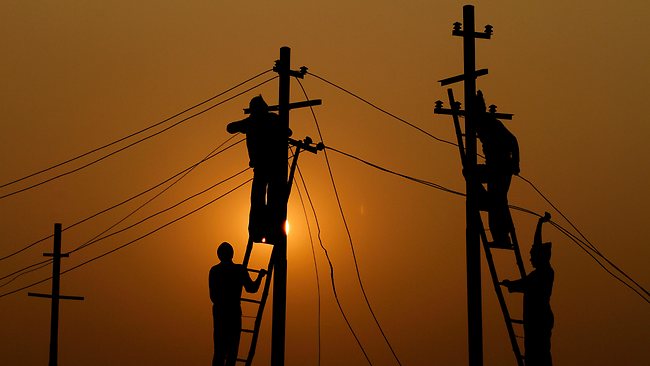A new study reveals the urgent need to address instabilities in the supply of electrical power to counteract an increase in the frequency and severity of urban power outages.
Research by Hugh Byrd, Professor of Architecture at the University of Lincoln, UK, and Steve Matthewman, Associate Professor of Sociology at the University of Auckland, New Zealand, highlights the insecurities of power systems and weakening electrical infrastructure across the globe, particularly in built-up urban areas.
The work builds on previous studies which examined a sharp increase in electrical usage over recent years, and warned the world to prepare for the prospect of coping without electricity as instances of complete power failure become increasingly common.
Professor Byrd explained: “We have previously highlighted that demand for new technology continues to grow at an unprecedented rate. Our new research emphasises why energy sources are becoming increasingly inadequate, and simply cannot continue to meet this demand.
“Throughout our study, we observed a number of network failures due to inadequate energy, whether through depletion of resources such as oil and coal, or through the vagaries of the climate in the creation of renewable energy.”
The British energy regulator Ofgem has predicted a fall in spare electrical power production capacity to two per cent by 2015, meaning there is now even less flexibility of supply to adjust to spikes in demand.
The issue of energy security exists for countries which have access to significant renewable power supplies too. With rain, wind and sunshine becoming less predictable due to changes brought about by global warming, the new research found that severe blackouts in Kenya, India, Tanzania and Venezuela, which all occurred during the last decade, were caused by shortages of rain in hyrdro-dams.
Further to the irregularities involved in renewable power generation, the study concludes that worldwide electricity supply will also become increasingly precarious due to industry privatisation and neglect of infrastructure.
Professor Matthewman said: “Over the past two decades, deregulation and privatisation have become major global trends within the electrical power industry. In a competitive environment, reliability and profits may be at cross-purposes — single corporations can put their own interests ahead of the shared grid, and spare capacity is reduced in the name of cost saving. There is broad consensus among energy specialists, national advisory bodies, the reinsurance industry, and organisational sociologists that this has exacerbated blackout risk.”
These trends have seen the separation of power generation, transmission and distribution services – a process which Professors Byrd and Matthewman suggest only opens up more opportunity for electrical disruption. Their study reveals the difficulties that arise when different technical and human systems need to communicate, and points to a breakdown in this type of communication as the main cause behind two of the world’s worst ever blackouts – from Ohio, USA, to Ontario, Canada, in 2003; and across Italy and neighbouring nations in the same year. Together, these power failures affected more than 100 million people.
Professor Byrd said: “Electrical power blackouts are often reported as human errors or as technological shortcomings, so the problem is either reduced to the level of individuals, or to nuts and bolts. This binary of blame — people or hardware — only obscures the systemic nature of network failures, which are the outcome of relations between people, technical systems, resources, institutions, regulatory frameworks, environmental conditions and social expectations. There is never one single event or action that causes a blackout, but the bottom line is simple: no matter how “smart” a city may be, it becomes “dumb” when the power goes out.”
“In the privileged West, we assume a continuous and stable supply of electricity to meet our endless demands. However, this assumption will be increasingly challenged and serious questions will have to be asked at both the individual and collective level concerning what we want and what we need; balancing what is good for us with what is good for others, and ultimately what is good for the environment.”
References:
Article: Lights out: research shows urgent need to address instability of world’s power supplies | University of Lincoln — 28th October 2014.
Publication: Hugh Byrd, Steve Matthewman. Exergy and the City: The Technology and Sociology of Power (Failure). Journal of Urban Technology, 2014.













Comments